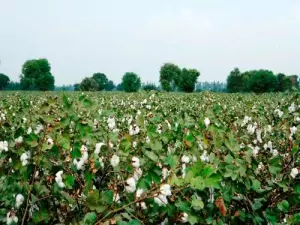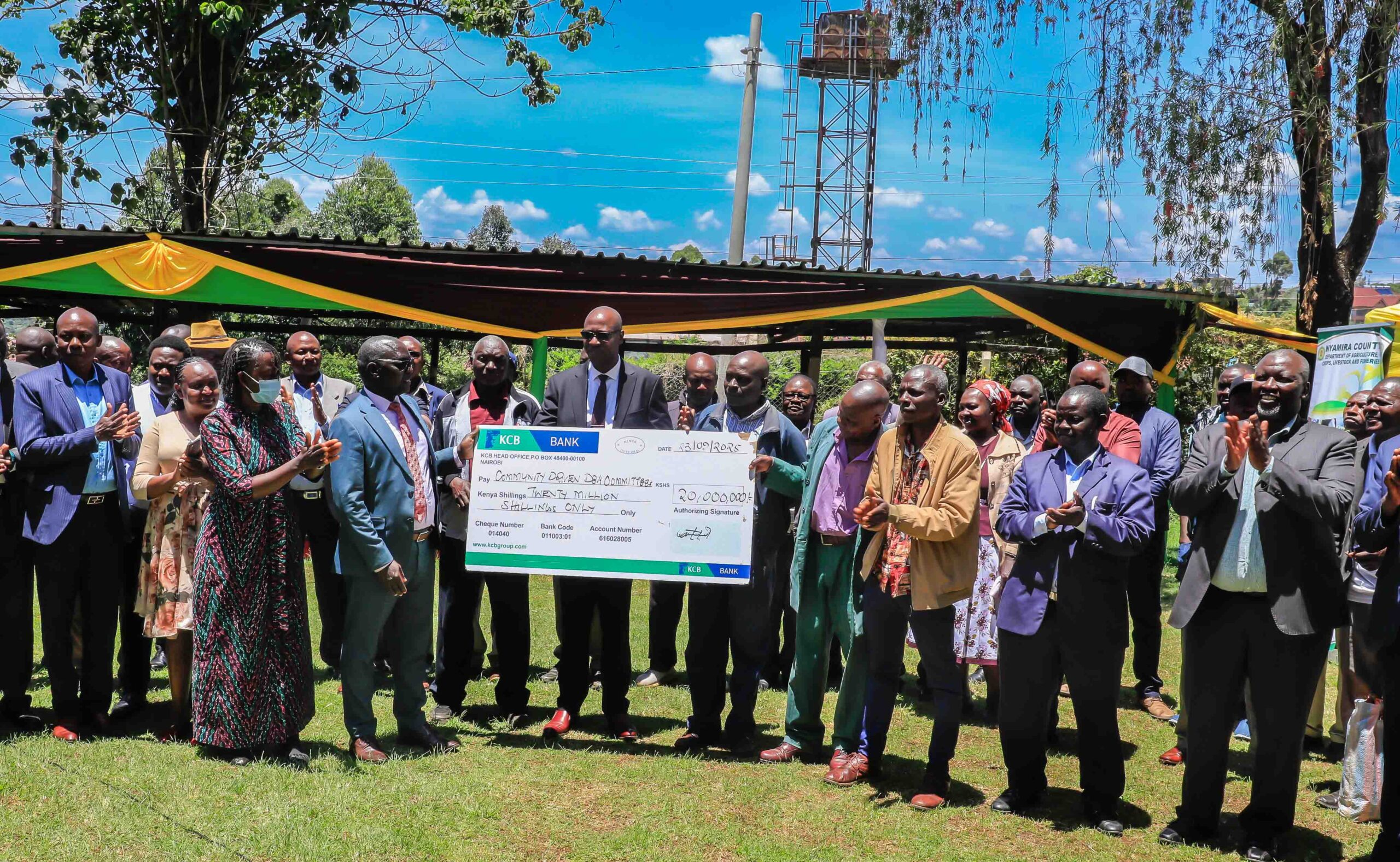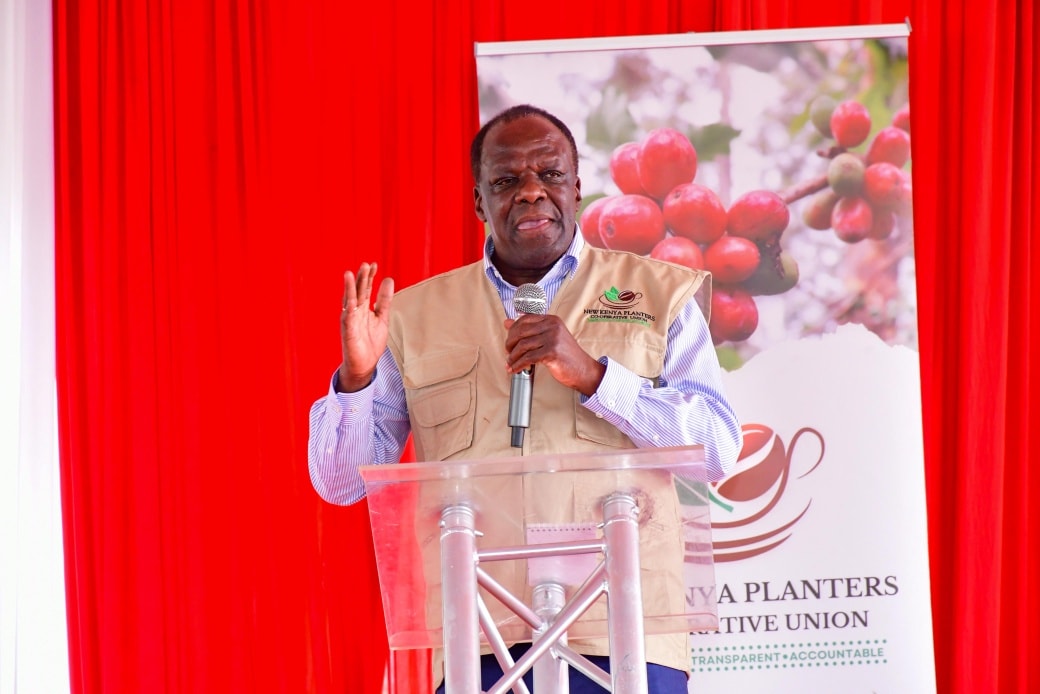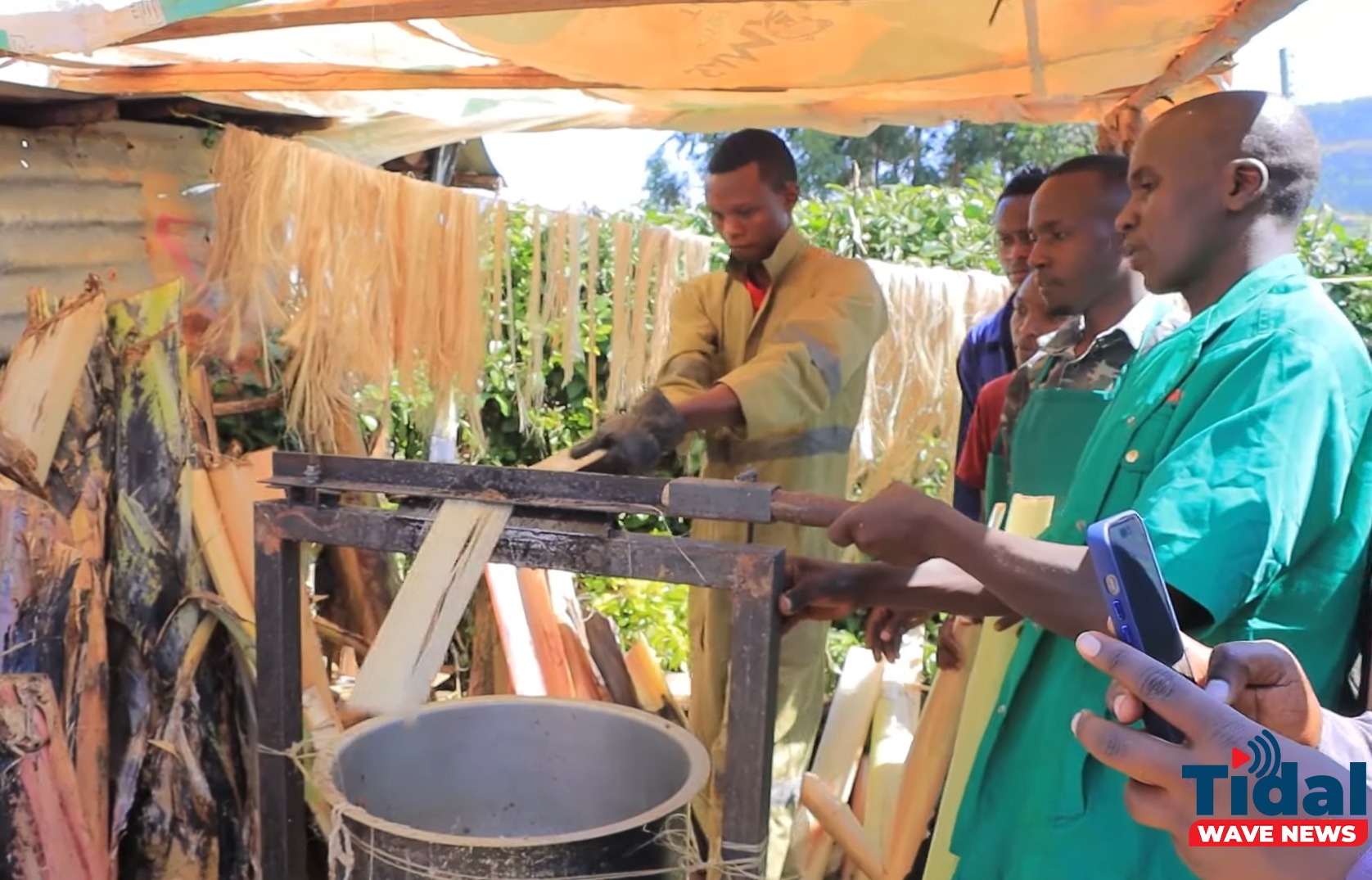
Arnold Ageta
As the effects of rising temperatures continue to change environments and lives in unexpected ways around the world, genetically modified seeds have been touted as one solution to Covid’s effects on food production.
The idea is that by scientifically engineering seeds like wheat and corn so that they are better to withstand high temperatures, we can adapt farming on hotter planet.
But in large part of East Africa, a raging battling drought and lower crop yields, these genetically modified seeds are banned.
In Kenya, the government lifted the ban on GMO seeds which was introduced by the previous administration.
However, this move has garnered huge backlash from thousands of farmers as well as agricultural organizations and food safety lobby groups.
At Joseph Thika’s farm in Kembembe village Kirinyaga county, workers are busy harvesting Bt cotton. Bt cotton is a genetically modified pest resistant plant which does not appeal to the bollworm, a pest that attacks crops.
According to Thika the new cottons are a game changer in his life after the introduction of the crop one year ago by the government.
‘‘This variety of Bt cotton is very good and we started planting last year after it was imported. We find it more beneficial than the old one,’’ said Thika.
He adds that this one takes four to five months to mature but the previous one took nine months and it is yields are high.
Two varieties of cotton which have grown in Kenya for decades are hart 89M and KCA 81M produce low yields leads to farmers incur losses.
Thika says he ventured into the genetically modified variety of cotton after receiving training from the Ministry of Agriculture officers.
‘‘The day I was trained, was when I decided to plant this variety, it’s easy because after planting and weeding you just wait for harvest and take it to the market. This season I planted maize but I harvested nothing, but I am happy I will harvest the cotton, again we are waiting for another round of rain in October and April for the next season,’’ he explained.
East Africa and the horn of Africa region has been affected by drought for 5 consecutive failed rain seasons affecting more than 36.1 million people and millions of animals.
Mtwapa which is 600km from Kirinyaga county, biotechnology experts are busy inspecting the genetically modified plants on a cassava farm at the Kenya Agricultural and Livestock Research Organization trial farms in Kilifi county. This new variety of cassava can withstand disease and even drought.
Catherine Othaga, one of the trainees says that she cannot at the moment differentiate between the normal cassava and the ones which have been researched and modified. They are very beautiful plants and they are growing well.
‘‘The color is normal, they are very healthy and their size is good which will not result in losses for farmers,’’ she adds.
Varieties of cassavas such as Shibe, Tajirika, Karembo and Zaluka have been grown in Kenya for a long time but have been recently producing poor yields for farmers.
Climate change is decreasing food production due to rising temperatures and changing weather patterns and seasons, drought and heavy precipitation events affect water sources and can erode soil and its nutrients and the effects of climate change have started to be felt in Kenya.
According to the Kenya National Bureau of Statistics there are approximately 100, 000 cassava farmers who produce over 1000,000 tons of cassava each year. But their production has declined due to climate change and diseases like the brown streak virus which can reduce cassava roots yields by up to 70%.
Peter Muthiani another trainee points out that genetically modified cassava will be a game changer for food security in Kenya.
‘‘GMOs are a solution to many problems such as climate change and diseases so it is good to expand our minds together as a community and farmers,’’ he explained.
Without GMOs, he adds, we will not be able to live in the future and we must decide to starve or embrace this technology.
‘‘As long as we follow the established procedures for embracing this technology, there are organizations and departments making sure that crops will not harm people in future,’’ he urges.
However, thousands of farmers in the country have vowed to continue using local seeds and are rejecting genetically modified organisms or GMOs in the name of protecting the environment and stopping biodiversity laws.
Catherine Irungu a farmer and a seed banker at Ndeya Sea Shape Training Farm says using local seeds promotes soil health by reducing chemical input.
‘‘We are actually against GMO seeds. We want to grow our indigenous occurring seeds. Since they are healthy, they promote nutrition value since we do not apply some of those pesticides and herbicides that are being promoted by multinational companies,’’ she argued.
She adds that they make their own remedies like normal composting and vermicomposting.
In Kenya 90 per cent of seeds comes from the local seeds system and approximately 70 per cent of small holder farmers depends on indigenous seed compared to other places like the USA and countries in Latin America where GMO use is high among both large and small scale farmers.
Last year Kenya’s new government lifted a ban on the importation of GMOs which was imposed 10 years ago.
The ban was originally enacted by the cabinet following claims that GMOs where a treat to health based on study that was conducted in France.
The study was later debunked by European scientists, the government is now planning to import 11 tons of genetic and modified maize seeds to curb a food shortage that is affecting an estimated 5.1 million Kenyans on the arid and semi-arid areas of the country.
However, some farmers want to hear none of it. Daniel Kinuthia, an organic farmer at Theru village, Kiambu county who says they should reject GMO seeds completely.
‘‘This is something we have been introduced to that we do not know anything about. The previous government rejected these seeds yet the current government is advocating them. Why?’’ asks Kinuthia.
Organic farming organizations are opposed to the move by government to allow genetic foods in the country.
Ann Maina from the Biosafety Association of Kenya explains that they do not support genetically modified foods.
“We call for the government to have the precautionary principle we are clear on issues and have an open mind so that we can also promote agroecology which looks at more of production of food in an ecological way,’’ she advocates.
Kenya currently stands as the only country in the region that allows for the importation of genetically modified seeds and foods.
Tanzania, Uganda and Burundi have not yet opened up to genetically modified seeds and products.
Uganda remains conscious about the use of such seeds while Burundi maintains completely opposition to the importation of genetically modified products and seeds due to safety concerns.




2 thoughts on “The seeds of controversy: battling drought and the GMO debate”